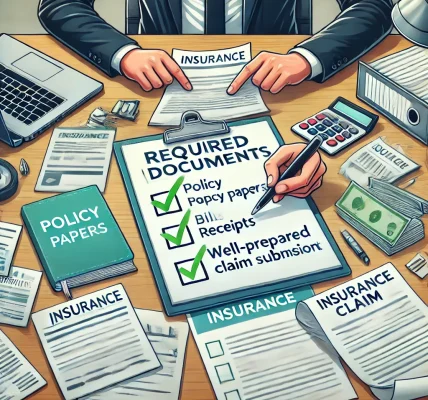Introduction
Filing an insurance claim can be a crucial step in recovering from financial losses due to accidents, property damage, or health-related issues. However, one of the most critical aspects of a successful claim is providing accurate and truthful information. Any inaccuracies—whether intentional or accidental—can lead to claim denials, legal consequences, or financial setbacks. In this blog, we will explore the importance of accuracy in insurance claims, the risks associated with incorrect information, and best practices for ensuring a smooth claim process.
Why Accuracy Matters in Insurance Claims
1. Ensures a Smooth Claim Process
Insurance companies assess claims based on the information provided. Inaccurate or incomplete details can cause unnecessary delays, leading to frustration and financial inconvenience for the policyholder. By providing precise details from the beginning, claimants can avoid prolonged verification processes and ensure quicker payouts.
2. Prevents Claim Denials
Even minor discrepancies in a claim application can raise red flags for insurance adjusters. If an insurer suspects misinformation, they may deny the claim outright, leaving the policyholder without coverage. This applies to all types of insurance, including health, auto, home, and business insurance.
3. Avoids Legal Consequences
Submitting false or misleading information in an insurance claim can lead to allegations of insurance fraud, which is a serious offense. Legal penalties can include fines, loss of coverage, and even criminal charges in extreme cases. By ensuring that all details are correct and verifiable, claimants can protect themselves from legal risks.
4. Maintains a Good Relationship with Insurers
Insurance providers keep records of past claims, and a history of inaccuracies or misstatements can affect future interactions. Policyholders with a track record of submitting accurate claims are more likely to receive favorable treatment when renewing policies or filing additional claims in the future.
Common Mistakes That Can Affect a Claim
1. Exaggerating Damages or Losses
Some policyholders may be tempted to overstate damages in hopes of receiving a higher payout. However, insurance companies conduct thorough investigations and can detect inconsistencies. Exaggeration can lead to claim rejection or potential legal action.
2. Providing Incomplete or Incorrect Information
Errors in personal details, policy numbers, or incident descriptions can lead to claim processing delays. Even a small mistake in dates, locations, or circumstances surrounding the event can cause complications.
3. Not Reporting Claims on Time
Insurance policies often have specific time limits for reporting claims. Delays in filing can lead to questions about the legitimacy of the claim and may result in denial.
4. Failure to Document the Incident Properly
Lack of sufficient documentation, such as photos, medical reports, or witness statements, can weaken a claim. Proper records help substantiate claims and reduce disputes with the insurer.
5. Withholding or Concealing Information
Some policyholders may intentionally omit relevant details, such as pre-existing conditions in health insurance or past accidents in auto insurance. This can lead to claim rejection and possible policy cancellation.
Best Practices for Filing an Accurate Insurance Claim
1. Review Your Policy Carefully
Understanding your insurance policy’s terms, coverage limits, and exclusions is crucial. This ensures that you provide relevant and accurate information while filing a claim.
2. Gather and Preserve Evidence
Immediately after an incident, collect and store evidence such as photographs, videos, police reports, medical records, and receipts. This documentation will support your claim and reduce disputes.
3. Report the Incident Promptly
Notify your insurance provider as soon as possible. Delays in reporting can complicate the verification process and may result in claim rejection.
4. Be Honest and Transparent
Always provide truthful and complete information. If you’re unsure about certain details, consult with your insurer rather than guessing or making assumptions.
5. Keep a Record of All Communications
Maintain copies of emails, letters, and call logs with your insurance company. This will help you track the claim’s progress and serve as evidence if disputes arise.
6. Work with a Professional If Needed
If a claim is complex, consider seeking assistance from an insurance agent, attorney, or public adjuster. These professionals can guide you through the process and ensure that your claim is filed correctly.
Legal Considerations When Filing an Insurance Claim
1. Insurance Fraud Laws
Every country has strict laws against insurance fraud. Even unintentional errors can sometimes be perceived as fraudulent activities. Understanding the legal framework in your jurisdiction can help you avoid unintentional violations.
2. Duty of Good Faith
Policyholders are expected to act in good faith when dealing with insurers. This means providing complete and accurate information without any intent to deceive.
3. Dispute Resolution Options
If an insurance claim is unfairly denied, policyholders have the right to appeal the decision. Most insurers provide a process for claim disputes, and legal options such as mediation or arbitration may be available.
4. Privacy and Data Protection
When submitting personal information during a claim, ensure that your insurer complies with data protection laws to safeguard your privacy.
Conclusion
Accuracy is the foundation of a successful insurance claim. Providing precise and truthful information not only ensures a smooth claim process but also protects policyholders from financial losses, legal troubles, and policy cancellations. By following best practices and understanding legal responsibilities, individuals can navigate the claims process effectively and receive the benefits they are entitled to. Whether dealing with health, auto, home, or business insurance, honesty and attention to detail will always work in favor of the claimant.



